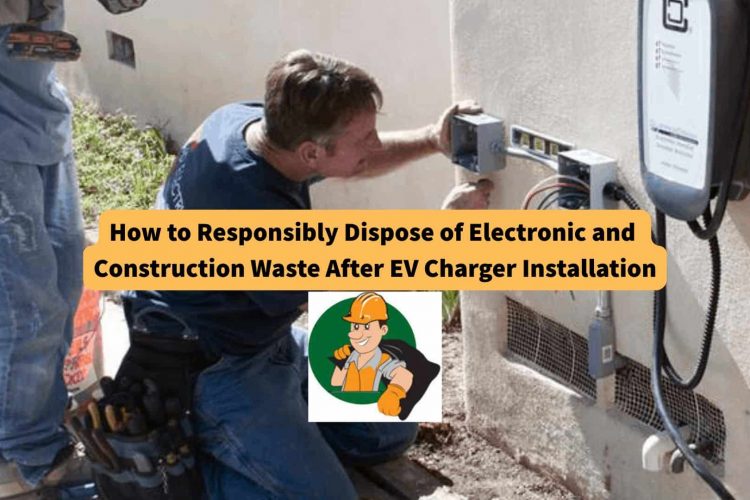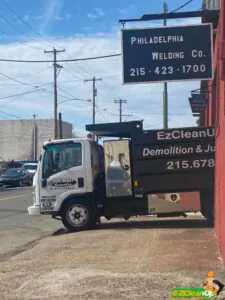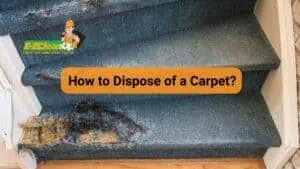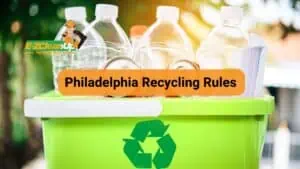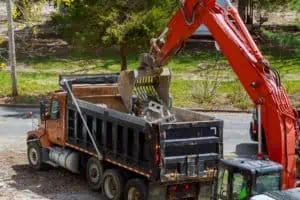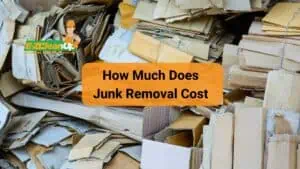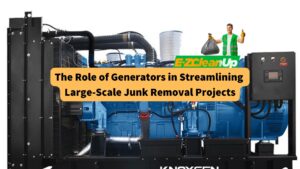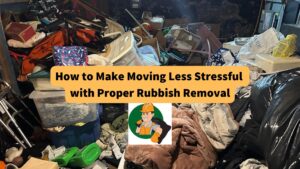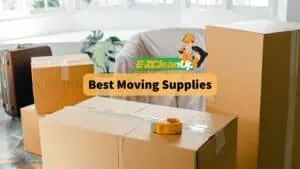After installing an EV charger, gather all leftover wires, packaging, and debris. Afterward, you can recycle electronics at e-waste centers and take construction waste to approved drop-off sites. This helps protect the environment and keeps your space clean and safe.
To responsibly dispose of electronic and construction waste after EV charger installation, this quick guide shows you how to safely and responsibly get rid of electronic and construction waste, without the mess or the hassle.
#1 What to Do With the Leftovers After EV Charger Installation
Getting an EV charger installed at home or work is a big step toward a cleaner, smarter future. And with trusted EV charger installation services, switching to electric is easier than ever.
But once the work is done, you might be left with less exciting stuff, old wires, broken panels, drywall bits, or piles of packaging.
Electronic and construction waste isn’t regular trash. It may contain hazardous materials, bulky debris, or valuable recyclables that require special handling.
Moreover, improper disposal can lead to environmental harm, legal fines, or even missed recycling opportunities.
#2 How to Handle the Leftover Waste the Right Way
Not sure what to do with the mess left behind? Follow these simple steps to safely get rid of wires, debris, and packaging after your EV charger installation.
Step 1: Sort Before You Haul
Don’t just throw everything into bags. Start by sorting the waste into three main groups: construction debris, electronic waste, and general recyclables.
Construction Debris
This can include:
- Concrete pieces
- Drywall scraps
- Wood offcuts
- Plastic conduit
- Broken tiles
Electronic Waste (E-Waste)
You might find:
- Old circuit boards
- Extra wires or cables
- Switches, sensors, or outdated panels
- Burnt-out bulbs from access panels
General Recyclables
Look for:
- Cardboard boxes from packaging
- Plastic sheeting
- Metal screws, nuts, or brackets
Sorting first makes everything easier, whether you’re dropping it off or arranging a pickup.
Step 2: Check Local Disposal Rules
Every city has different rules for getting rid of waste. Some offer free bulk pickups, while others require drop-offs or special permits, especially for construction waste.
Here’s what to check:
- Does your city offer free or low-cost e-waste drop-off events?
- Can you put construction waste out for curbside bulk pickup?
- Are there weight limits or sorting rules you need to follow?
Your city’s waste management website is the best place to find answers. And a quick 10-minute search can save you time, money, and frustration later.
Step 3: Partner With Certified Recyclers
When it comes to electronics, it’s best to work with certified e-waste recyclers. Look for those certified under R2 (Responsible Recycling) or e-Stewards.
Why it matters:
- They safely handle toxic materials like lead, mercury, and lithium.
- They recover useful metals like copper, aluminum, and gold.
- They can provide paperwork if you need to report sustainability efforts.
Some stores, like Best Buy or Staples, also accept small electronics for free. Just call ahead first to confirm.
Step 4: Repurpose What You Can
Before tossing everything out, take a moment to see what can be reused.
- Cables and Wires – Handy for DIY projects, repairs, or tinkering.
- Wood or Drywall Scraps – Useful for small fixes or creative upcycling.
- Boxes and Plastic Sheeting – Great for storage, moving, or donating.
You don’t need to keep it all, just give useful materials a second life and cut down on waste.
Step 5: Rent a Dumpster, But Pick the Right One
If your EV charger install involves drilling, trenching, or major upgrades, you probably have a lot of debris. A roll-off dumpster can make cleanup fast and simple.
When renting, be sure to:
- Say if you’re tossing out construction or electronic waste, not all dumpsters allow both.
- Ask if the company recycles materials after pickup.
- Compare prices by weight limits, not just size. Heavy stuff like concrete also adds up.
- Go with a provider that tries to keep waste out of landfills.
Step 6: Document Your Disposal
For businesses, tracking your waste disposal isn’t just smart, but it’s also great for your brand. It’s best to take photos, save receipts, and ask recyclers for certificates.
Why it matters:
- Strengthens your green image
- Supports certifications like LEED or Green Building Index
- Builds trust with eco-conscious clients
Even for homeowners, it’s a satisfying way to see the impact of doing things the right way.
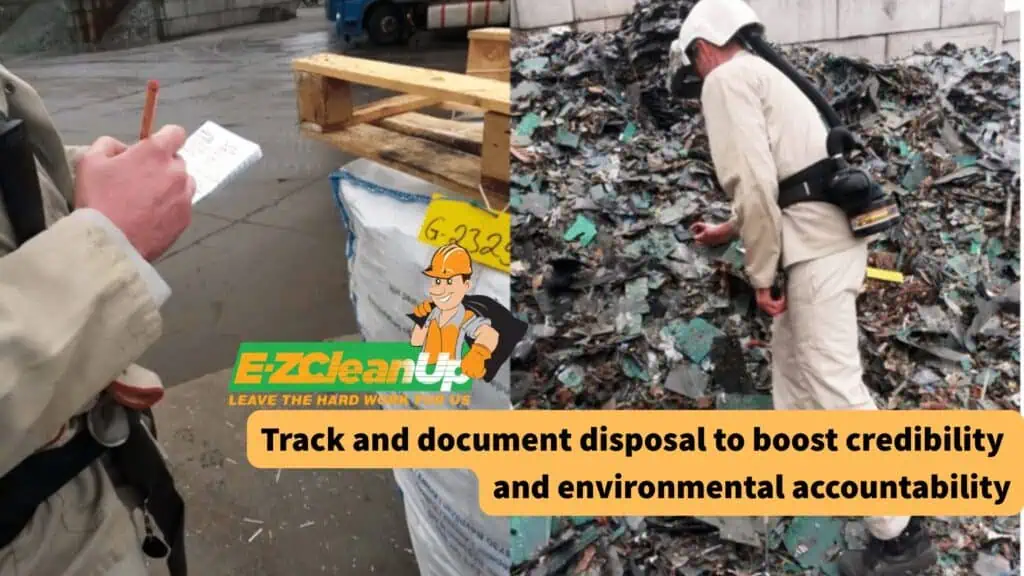
#3 Bonus Tips to Stay Ahead of the Waste Game
Don’t wait until the job’s done to think about cleanup. A little planning can cut down waste from the start.
- Ask your installer if disposal is included in the service.
- Choose minimal packaging or bulk delivery when ordering materials.
- Opt for digital manuals and paperwork to avoid extra printing.
Plan ahead now, and you’ll have less to deal with later.
#4 FAQs
Is there a fee for disposing of electronic or construction waste?
Often, yes. Fees depend on your location, the type of waste, and the amount. Electronics like TVs or lithium batteries may incur charges due to hazardous components.
How do I store waste safely before disposal?
Keep electronic parts in a dry, covered area to prevent corrosion or fire risk. Store sharp debris like drywall or tiles in sturdy bins to avoid injury or breakage.
What should I do with leftover lithium batteries or battery packs?
These require special handling, so never throw them in the trash. Use battery collection points at electronics stores or local hazardous waste programs.
Can I mix small amounts of construction and e-waste in my regular trash bin?
Usually no. Even small amounts can be harmful or illegal. Check local rules, as many areas have strict separation and disposal laws
#5 The Bottom Line—Finish Strong: Wrap Up Your EV Charger Project the Right Way
Installing an EV charger is a step toward a better future, but how you handle the leftover waste matters just as much. Whether you’re upgrading your home or your business, getting rid of electronic and construction debris the right way shows you care about more than just convenience.
Clean energy starts with smart choices and ends with clean habits. Don’t skip the final step. Make your waste disposal part of the progress!

